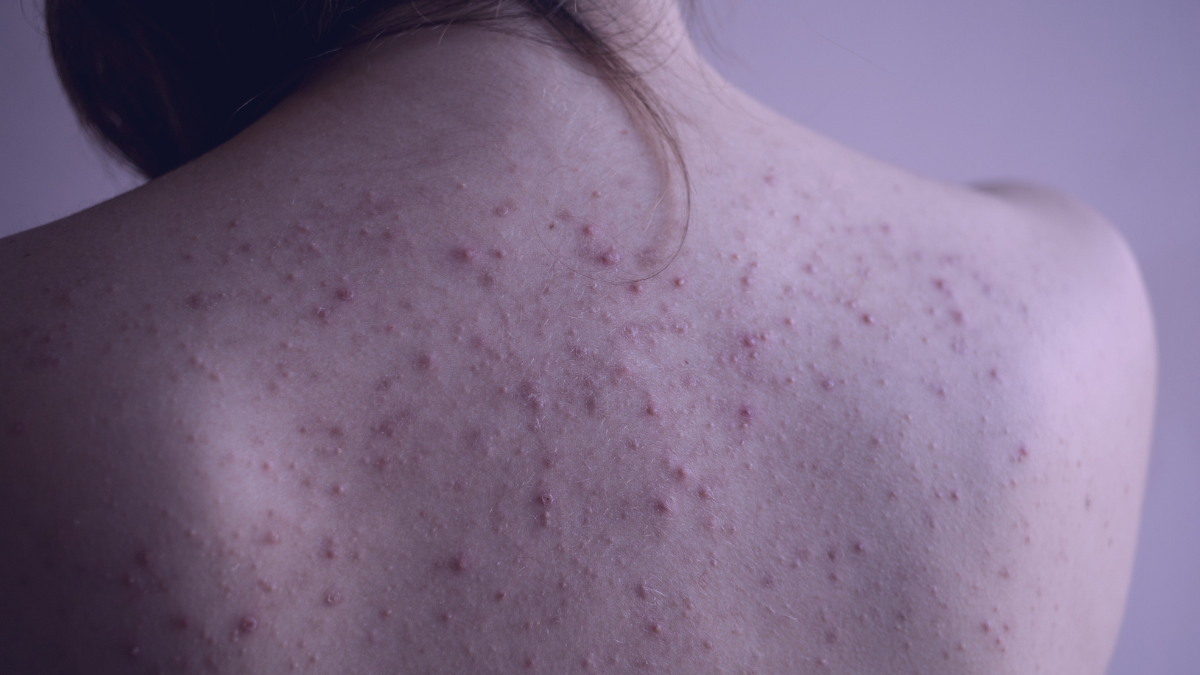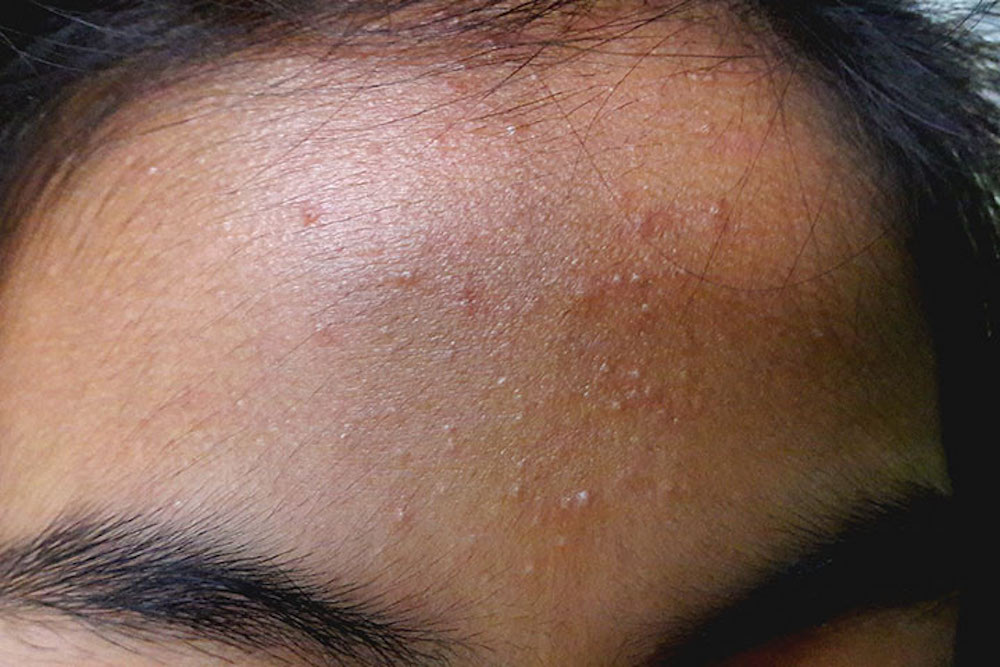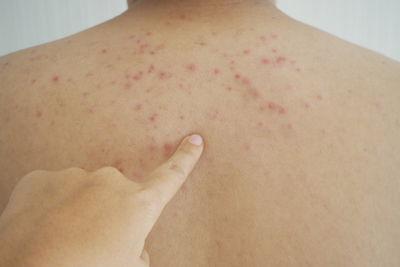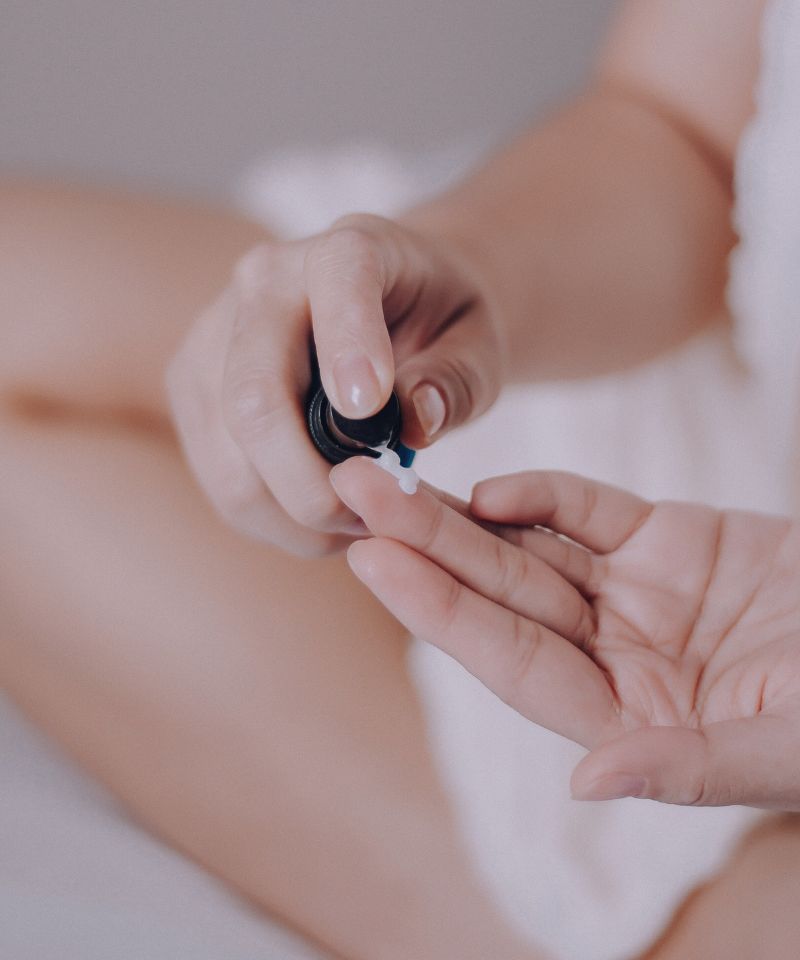Acne is a universal skin condition that affects people of all ages, ethnicities, and backgrounds, manifesting in various forms and intensities.
While most are familiar with common acne types, such as hormonal or cystic acne, there is a lesser-known variant that deserves attention: Acne Mechanica.
Acne mechanica, often referred to as friction pimple, is a type of acne that typically presents itself as a few pustules here and there, particularly on the face, and is triggered by sweat, friction, and pressure on the skin.
This particular type of acne is unique in its causes and manifestations, setting it apart from other forms of acne.
In this article, I will explain acne mechanica, including effective treatments for acne mechanica, and how you can address this pesky condition.

What is Acne Mechanica?
Acne mechanica is a form of acne that appears on the face and body when the skin is under pressure or rubbed against heavy clothing or protective gear.
It is defined as frictional acne that erupts due to friction, pressure, stretching, rubbing, and pinching of the area where the lesions can be seen.
Acne mechanica can develop anywhere on the face or body but is most common on the forehead, cheeks, chin, chest, shoulders, and back.
Dermatologists have even discovered cases of acne mechanica caused by friction between the thighs in people who suffer from obesity.
Acne mechanica can also appear regardless of pre-existing acne problems, and even individuals with healthy and clear skin who have never dealt with acne breakouts before can experience this condition.
How Do You Know You Have Acne Mechanica?

Acne mechanica presents itself as angry and inflamed pustules on the back, shoulders, chest, thighs, and forehead.
Compared to common acne vulgaris, which is the common type of acne most people experience at some point in their lives, acne mechanica is usually seen as a few scattered pus-filled pimples rather than groupings of lesions.
Therefore, the only way to differentiate the two conditions is to pay closer attention to what’s triggering your breakouts.
If your breakouts directly correlate to wearing heavy protective gear, tight clothing, or excessive sweating and physical activity, then you’re more likely dealing with acne mechanica rather than regular acne.
On the other hand, if your breakouts occur without any of the factors mentioned above, they are more likely to be caused by other factors (like stress or hormones) and not because of friction, pressure, or rubbing.
Here are some common symptoms of acne mechanica:
- Whiteheads and Blackheads: These are small, flesh-colored bumps or black dots on the skin filled with excess oil and dead skin cells.
- Papules and Pustules: Papules are small, raised, red bumps that may be tender to the touch. Pustules are similar to papules but contain pus and have a white tip.
- Small, Flesh-Colored Bumps: In the early stages of acne mechanica, the skin may just feel rough or have small, rough-feeling bumps.
- Breakouts in Patterns: Breakouts may occur in patterns where the trigger (such as sports equipment or heavy clothing) comes into contact with the skin.
- Clear Skin in Other Areas: Breakouts appear in strategist spots, such as the forehead and temples, when wearing a helmet, cap, or headband, while the skin is generally clear and healthy in other areas.
- Breaking Out in Uncommon Areas: Such as the shoulders due to holding a bag or backpack.
Acne mechanica typically clears up in a short amount of time after the main trigger is removed. More on this below.
It’s also worth noting that while acne mechanica isn’t a serious condition, its severity can be aggravated if left untreated or completely neglected for a long time.

What Causes Acne Mechanica?
Acne mechanica is a condition that commonly occurs in those who are active, such as athletes, and is caused by sweat, friction, pressure, and stretching of the skin.
An intense activity causes heat and friction between the clothing and the folds of the skin, which are usually sweaty if the person is wearing heavy or bulky gear.
Any activity that traps heat against the body for a prolonged period and rubs or puts constant pressure on the skin can trigger acne mechanica.
A few common acne mechanica causes include:
Friction:
Friction is the main cause of acne mechanica. It occurs when two surfaces rub against each other, such as between clothes and skin or between sports equipment and skin, and causes inflammation that results in a red and swollen pimple.
Perspiration:
Sweat can mix with the oil on your skin and create an environment that encourages the growth of bacteria.
Heat:
Heat can cause your pores to enlarge, which allows bacteria to enter, leading to breakouts.
Pressure:
Anything that puts pressure on your skin for prolonged periods can also contribute to acne mechanica breakouts due to creating inflammation.
Sports Equipment:
Helmets, headbands, and tight uniforms can all contribute to acne mechanica due to the constant rubbing and trapping of sweat.
Backpacks or Bags:
Heavy backpacks or bags that constantly rub against your skin can cause acne mechanica on shoulders. This is particularly common among students and hikers.
Tight Clothing:
Clothes like bras, leggings, and skinny jeans that are too tight can trap heat and sweat against your skin, leading to acne mechanica.
Heavy Cosmetics:
Heavy cosmetics that contain clogging ingredients such as silicones, emollients, and oils can block your pores and lead to breakouts. This can be especially problematic if you wear heavy cosmetics while exercising or in hot weather.
Occupational Hazards:
Certain jobs that require wearing heavy equipment or tight uniforms can also lead to acne mechanica due to the friction they put on the skin. This includes jobs like construction, military service, and healthcare.
How to Treat Acne Mechanica?

You might find yourself asking, “Does acne mechanica go away?”
The good news is, yes, you can treat acne mechanica.
And the best way to do that is by removing (or reducing) the factors that are the source of constant friction or pressure to prevent the condition from becoming inflamed.
Here are a few ways you can treat and prevent acne mechanica:
Switch to Loose and Breathable Clothing
If you’re prone to acne mechanica, try to wear clothes made from loose and breathable fabric, such as cotton, linen, and bamboo, as these won’t trap heat or sweat against your skin.
Avoid Heavy Fabrics
On the other hand, avoid fabrics such as polyester and rayon as these can trap heat and, therefore, sweat will remain tightly pressed against your skin.
Shower Immediately After Exercising
Avoid sitting in sweaty clothes for a long time after an exercise, as this will allow bacteria to stay on your skin longer and increase your chances of inflammation and conditions such as acne. Instead, try to shower as soon as possible after sweating excessively.
Clean Your Equipment
Make sure to keep your sports gear and accessories clean, as dirt and grime can exacerbate acne mechanica breakouts.
Wash Your Hair Regularly
If you have long hair, keep it clean and out of your face during sweating sessions. The oil in your hair can contribute to clogged pores and increase the risk of acne mechanica breakouts.
Avoid Fragranced Shower Gels
If you experience acne mechanica in body areas, avoid using heavily fragranced shower gels, as these components can further irritate the skin and exacerbate the inflammatory lesions.
Don’t Use Body Lotions Before Exercising
Body lotions usually contain heavy emollients, and since your pores are likely to be stretched open from sweating, applying these components to your skin will increase the risk of developing acne mechanica.
Don’t Wear Makeup While Exercising
Heavy makeup, such as foundation and concealer, can also clog your pores and, when mixed with sweat from exercising, can worsen acne mechanica.
Find the Right Skincare Products
Additionally, besides cutting out the above-mentioned triggers to treat existing acne mechanica and prevent the condition from reappearing down the line, you can also consider investing in a skincare routine consisting of products that will directly target the lesions, help soothe inflammation, and reduce the swelling.
Here are a few fantastic acne mechanica treatments to include in your skincare routine:
Salicylic Acid: Besides being gentle on the skin, salicylic acid is an excellent chemical exfoliant that can penetrate deep into the pores and dissolve the cellular debris responsible for all types of acne, including acne mechanica.
Benzoyl Peroxide: Due to its antimicrobial properties, benzoyl peroxide can help reduce the overgrowth of acne-causing bacteria on the skin.
Adapalene: This topical retinoid is essentially a form of vitamin A that helps reduce inflammation, unclog pores, and reduce acne by accelerating cellular function.

My name is Simone and I am a certified skin specialist. I created this website to teach my readers how to take great care of their skin and I also like to occasionally share my honest opinions on skincare products I’ve tried. You can learn more about me here.
